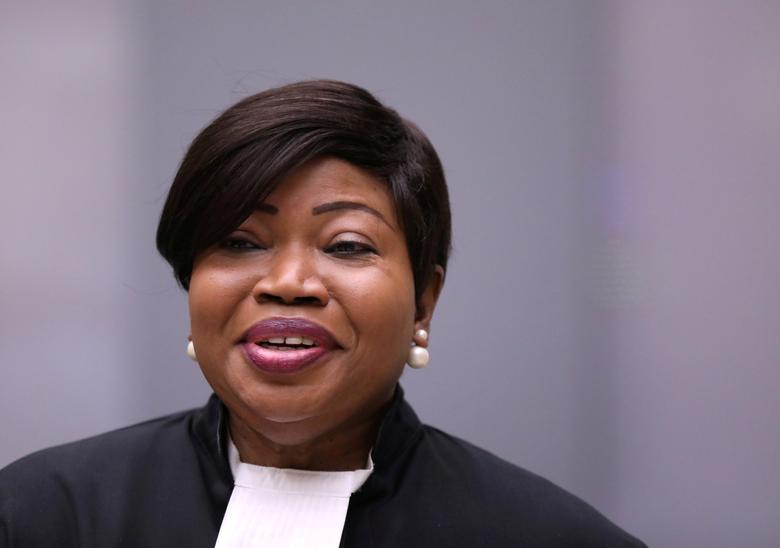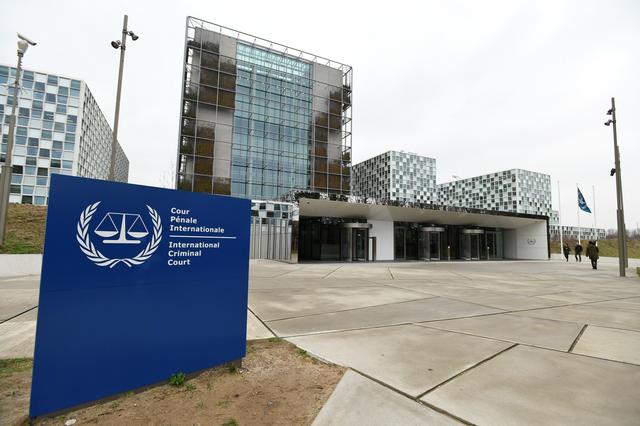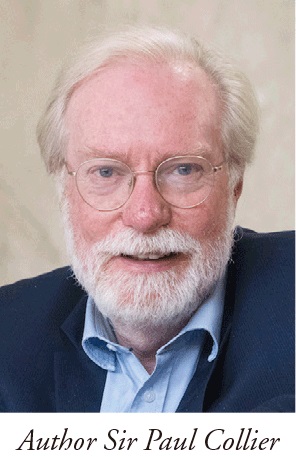Implications of the Pandemic for Capitalism
By Sir Paul Collier
Faced with the Covid-19 pandemic, neither Chinese autocracy nor most of the Western democracies are emerging with much credit. To understand why both systems have revealed severe inadequacies, and what accounts for the exceptions, I draw on recent research that is starting to reveal the characteristics that a successful society needs. They are cohesion, a capacity for wisdom and learning, and trusted modest leadership. Covid has revealed why each of these mattered, and in doing so showed why they matter more generally.
Social Cohesion
The first characteristic is a degree of social cohesion within a community. By social cohesion I mean a ready ability of the people living together in a place to forge shared purposes, shared understanding about how things work and don't work, and shared obligations among citizens. So defined, social cohesion is enormously important in building willing compliance at many different levels. Most obviously, it is valuable at the political level: for democracy to work, its citizens need to be able to come together around some common purpose, such as containing Covid, reach some common understanding of how this is best achieved, such as "we all need to get vaccinated", and then accept the implications at the level of each individual: "I have a duty to get vaccinated."
But it is also valuable at a smaller scale. A successful firm works not as a nexus of contracts between individuals, but as a community. The workforce rallies around some common purpose set by good leadership – this is what Toyota managed to create when it developed "quality circles" to produce fault-free cars. The common purpose was linked to a common understanding of the problem – faults had to be spotted at the point on the production line where they first occurred. This translated into individual actions – "faults are treasures" to be spotted and reported instantly. Hence, they implied an obligation on each worker to stay vigilant, but not to abuse their new power to stop the production line. Most obviously, a successful family is a community in which those of its members in the prime of life accept obligations to the young and the elderly.
Fortunately, humans naturally form communities: evolution has equipped humans to be far more pro-social than any other mammal. We are hard-wired to belong to communities because they are more effective at achieving human goals than individuals in isolation. Rousseau was the first philosopher to see the advantage of co-operating at scale in a community: hunting solo we could only catch rabbits, whereas hunting together we can catch stags. Within them, we want to gain the good opinion of the other members through some attribute. That attribute can be thought of as being "a good person". What it means to be a good person will vary between communities. In some, the characteristics which make being so judged can be ranked.
For example, in a Viking community a good person was brave, strong, and brutal against the enemies of the group. In a modern meritocracy such as a university department, a good person may mean one who has high cognitive abilities and publishes a lot of influential papers. In both of these superficially very different communities, members were ranked: some people had higher status than others. But in other communities, people are not ranked but judged according to whether they meet a threshold, such as respectability, kindness, or loyalty, which can be met by all its members. Successful societies abound in such criteria, so that everyone can potentially gain respect. That desire for the good opinion of others is fundamental: by harnessing it to a common purpose, the group can create willing compliance with actions that are individually costly but collectively beneficial. This was needed during Covid. The common purpose of containment required everyone to avoid infecting their neighbors. Denmark could rapidly reopen schools because everyone accepted that children must be kept clear of older people. In contrast, in the United States the immediate response to Covid was queues outside gun-shops: shoot your neighbor was not a viable strategy.
A community forges common purposes through dialogue. Dialogue engages everyone: all members of the community can participate and co-own the outcome. It flows back and forth between equals who aim to understand each other, in contrast to instructions flowing down a hierarchy. An analogy is the game of ping-pong: participation implies mutual acceptance of its rules. The rules of dialogue preclude abuse, and presume a mutual willingness to search for common ground. Even when it cannot be found, people come to understand the validity of the other perspective, reflecting their different life experiences. Dialogue usually takes the form of narrative: it is the style that all of us have evolved to master. It is inclusive, in contrast to deductive analytics and quantification, both of which privilege skilled participants who may be drawn from a distinctive part of the population with its own priorities.
Dialogues not only build common purposes. To achieve those common purposes through coordinated action they need to build a common understanding of a situation, so that the community can forge a common strategy for action. They are necessary for coordinated action, but not sufficient in themselves. The final step is a sense of common obligation. The rules for bestowing good opinion are linked to the action required of each member. The key concept here is "contributive justice" proposed by the celebrated Harvard moral philosopher Michael Sandel (The Tyranny of Merit, 2020). By this he means that fairness hinges on mutuality: everyone must contribute what they can, and through this we gain the respect of others and self-respect. For people to be able to contribute, they need agency. They may contribute in multiple ways: through participation in the dialogue that builds the purpose, through bestowing good opinion, and most especially through actions that conform with the strategy.
In the Western democracies, this need for social cohesion has recently been questioned. Diversity has become highly valued, and most especially the assertion and celebration of distinct minority identities, and this is sometimes regarded as incompatible with social cohesion. That same fear of incompatibility is manifest in China and India, where the solution has been to suppress minority identities so as to strengthen cohesion. But I think that both these responses misunderstand the relationship between social cohesion and diversity: properly understood, there need be no tension between them. People can hold multiple identities. A society can be a mosaic of many groups, each with its own distinct identity, as long as all its members share some common overarching sense of a shared identity. Thus, at the level of a polity, people can have strong regional and class identities as long as these do not conflict with a common sense of belonging to the whole. Diversity is even compatible with such sub-national identities being mildly oppositional: "I am a Scot and we have long fought the English"; "I am a Yorkshireman and we have long struggled against the Lancastrians." They only become damaging if defined in opposition to the whole: "I am a Scot and therefore not British." But who should be included in the whole?
The answer was provided by Nobel Laureate Eleanor Ostrom (Governing the Commons, 1990). The first of her principles by which a community is able to overcome the tragedy of the commons is clarity of boundedness. Everyone in the community must know and accept that they themselves are a member, and know the criteria by which all others are included: the rules of membership must be common knowledge. As with common purpose, common understanding and common obligations, this common knowledge of the rules of membership can be built through dialogue. For practical purposes, the most realistic rules of membership for a society are those of citizenship.
Some societies were able to conduct a dialogue about Covid. In others Covid was instantly contaminated by prior political divisions and debate was abusive and polarizing, unable to build common purpose.

Wisdom & Learning
In addition to social cohesion, a successful society needs wisdom. Dialogue is an unguided missile that can lead a community into folly or trap a community in dysfunction. Plato thought that wisdom was incompatible with democratic inclusion: decisions must be entrusted to "guardian philosophers". But this proposition is a dangerous cul-de-sac. In denying the agency of dialogue to most people, it divides the community into "insiders" who set purposes and strategy, and "outsiders" who are expected to perform obligations to which they have not agreed. This, I think, is a fundamental breach of contributive justice. Worse, the role of being a Platonic Guardian attracts people who are over-confident of their abilities and a rationale for why their own values differ from those of the majority: they are wiser than others.
So, if everyone must participate in dialogue, but wisdom is an acquired rather than an innate attribute, what can be done? We know that knowledge comes in two forms: expert knowledge is what academics acquire through research, and share through teaching; tacit knowledge is acquired through "learning by doing" in a context. We have confused wisdom with expertise: wise decisions need to combine these different types of knowledge, held by different types of people. Wisdom evidently matters most when decisions are difficult, which arises from complexity. But the more complex is the issue, the higher is the ratio of tacit knowledge to expert knowledge involved in it (Paul Nightingale, "Tacit Knowledge and Engineering Design", in Anthonie Meijers (ed.) Handbook of the Philosophy of Science: Philosophy of Technology and Engineering Sciences, North-Holland, 2009). Hence, drawing on tacit knowledge is the critical step in wise decision-taking. On complex matters, expert knowledge without tacit knowledge is dangerous: the confidence of experts becomes a menace. Fortunately, expert knowledge is designed to be shared – it can be taught. In contrast, tacit knowledge is very hard to share – you learn it by doing it, and it is very particular to context. So, the synthesis on which wise decisions depend is more easily achieved by sharing pertinent expert knowledge with practitioners, than providing experts with the vast mass of context-specific knowledge of experience. Hence the people who need agency for complex decisions are expert-informed practitioners, not experts.
The knowledge that matters changes in response to problems: we repeatedly need to adapt to new situations that we do not fully understand. And so a successful community is one that is continuously adapting, experimenting and learning from trial-and-error. By devolving agency around a new common purpose, many experiments can be conducted in parallel. Within a well-functioning community, once an experiment works it spreads fast: people learn from each other because they trust each other.
Covid was a new problem. Some societies learnt from the first societies to be infected, as did New Zealand, or experimented with different approaches by devolving agency to local communities, as did Denmark. In others, exemplified by Britain, experts pretended that they knew what to do based purely on their own modelling, and so decision-taking was highly centralized. In contrast to Denmark and New Zealand, Britain ended up with appallingly high excess mortality.
Leadership in a Hierarchy
Although both wisdom and adaptability are fostered by devolving agency across the population, there is still an important role for hierarchy and leadership. Many purposes depend upon coordination at scale and although small communities happen naturally, large ones have to be built by leadership. Hierarchy is necessary but dangerous: it tempts leaders to use their power for their own individual purposes. Bad intentions, arrogance, and charismatic grandiosity all need to be prevented from usurping community before hierarchy can safely be allowed into a group. Among all other mammals the only form of leadership is dominance. Both democracies and autocracies can stumble into such leaders: Donald Trump in the US, Xi Jinping in China. They centralize decisions rather than devolve them, undermining both wisdom and adaptability. Faced with such leaders, the advantage of democracy over autocracy is that the agency conferred by the vote tends to remove them, as has happened in the US.
But humans have evolved a second type of leader who wins the respect of the group through sacrificing self-interest for the common good. Joseph Henrich (The Secret of Our Success, 2016) notes that in contrast to dominant leaders pro-social ones commonly use self-deprecating humor. Such leaders win trust and so can be communicators-in-chief. With this power they can swiftly reset common purposes, strategies, and obligations.
Such leaders are able to reset not only purposes and strategy but the very architecture of the decision process so as to suit the situation. At times of uncertainty, the key priority is that experiments should proliferate through devolved agency. But at times when the situation requires a solution that is evident but demands substantial self-sacrifice by everyone, trusted leadership can itself take the decision. For example, in response to Covid a retail business may need to reduce its number of branches and expand its online service. Decisions as to which branch to close cannot be devolved to branches, but the leader may be trusted to take fair decisions on behalf of everyone.
This is why Covid has produced such dramatic differences between societies. In the US, Trump centralized decisions in the presidency; in Britain, the civil service centralized decisions in Whitehall; in China, local officials in Wuhan were so scared of Xi that they suppressed information about Covid until it was out of control. Dominance belatedly enabled containment, but too late to prevent a global pandemic. In contrast, the leaders of Singapore, Denmark and New Zealand had all built widespread trust among their citizens. In Singapore this was used for swift and decisive leadership without arousing dissent; in Denmark and New Zealand, leaders did not claim expertise, but placed responsibility on everyone – "a team of five million" was the slogan of New Zealand's prime minister.

Conclusion
The implication of Covid is that capitalism can work well, but only in a certain type of society. It is one in which agency has been devolved across the population; in which despite differences, the society is cohesive because people accept a shared identity; in which decision-taking is designed for wisdom and adaptability; and in which leadership is modest and widely trusted. And so the lessons of Covid indeed have implications for both the conduct of businesses and the design of political systems.
The genius of capitalism comes not from harnessing the primitive instinct of greed that we share with all other mammals, but from our unique human evolved characteristics of being able to bond into a community, to innovate, and to learn from each other. A successful and enduring firm is a purposive community – a network of relationships within and between teams that cooperate to achieve its purposes. It is not merely a nexus of incentivized contracts between individuals. A successful leader of a firm builds trust with employees, suppliers and customers and through these, also with banks, bondholders and shareholders. These relationships become the key assets of the firm, encapsulated by all the connotations of its brand. Being trusted, a leader can rapidly get a workforce and partner companies to coordinate around new purposes, and new problems, as has proved to be crucial during Covid.
Some firms have taken the short-term option of sacrificing their workforce and their suppliers, to maximize profits for shareholders. Others have recognized that this moment of supreme stress is an opportunity to demonstrate loyalties and thereby to invest in them. Such a network of enduring relationships is the fundamental asset of a successful company, since it cannot readily be threatened by competitors. It therefore makes the firm resilient to whatever shocks might occur, and this is itself a source of financial confidence.
A successful and enduring economy harnesses this potential of individual firms on a larger scale. Through competing in a market, firms are constantly subject to checks and balances that impose a degree of discipline and pragmatism. Despite this discipline, the considerable differences in productivity between firms are remarkably persistent. Hence, whatever is explaining them cannot be easily imitated. Evidently, it cannot simply be a matter of hiring a smart CEO, or getting the latest technology. The persistent difference between good performance and poor performance is that asset of trusting relationships which cannot be transferred. Indeed, successful firms do not just compete with others, they cooperate with them in enduring relationships, as exemplified by the value-chains and business clusters which dominate world trade. A good current example within Europe is Airbus, which is an enduring relationship between a group of European firms that challenged Boeing, in much the same way that a generation ago enabled Toyota to challenge General Motors. Disastrously, Boeing took the short-term opportunistic route to profits, undermining the regulation of safety through effective lobbying. Once its new planes started to crash, its own employees blew the whistle on its reckless strategy. It now faces a devastating loss of consumer confidence, being forced into distressed sales of its planes to bottom-of-the-market airlines.
A successful society applies these same principles at a yet larger scale, integrating economic relationships into larger social purposes. At any one time, around half the population is economically inactive – children and students, the retired, the sick, and the unemployed. Most of us move through a life-cycle of all these phases, and so the economy has to meet these wider needs. This is the foremost task of public policy. But the levels of public policy are so powerful that they carry dangers of abuse if captured either by leaders or sub-groups of citizens. At its best, democracy within the context of checks and balances implied by the rule of law is superior to autocracy because it guards against these abuses. Autocracies can sometimes work well for a while, but being prone to abuses they suffer much wider variations in performance than democracies. At some stage they implode into dysfunction. Indeed, there is no successful example in human history of an autocracy that has sustained a good standard of living for its citizens. But democracy itself only works if it is built on social cohesion, the integration of practical and expert knowledge that enables wisdom, the devolved agency that permits innovation and learning, and the self-sacrificing leadership that enables common purposes to evolve. In some societies, capitalism has derailed because these deeper conditions for a healthy society have derailed.
Nor are the goals of a society reducible merely to economic wants and needs. A society has a culture, and many sub-cultures, which are vehicles through which its citizens find meaning in their lives. Again, the advantage of the devolved agency which is the core strength of democracy is that through freedom of association it enables the dynamism and vitality without which a society ossifies. The supreme autocracy of Louis XIV of France devised a routine so enjoyable that it was designated "The Perfect Day". That routine was repeated daily for 150 years. Increasingly detached from the lives of ordinary citizens, this proved to be the prelude to a violent and cataclysmic revolution.
Japan SPOTLIGHT March/April 2021 Issue (Published on March 10, 2021)
(2021/03/10)
Sir Paul Collier
Sir Paul Collier is the author of The Future of Capitalism (2018), and Greed is Dead (with John Kay, 2020)

















